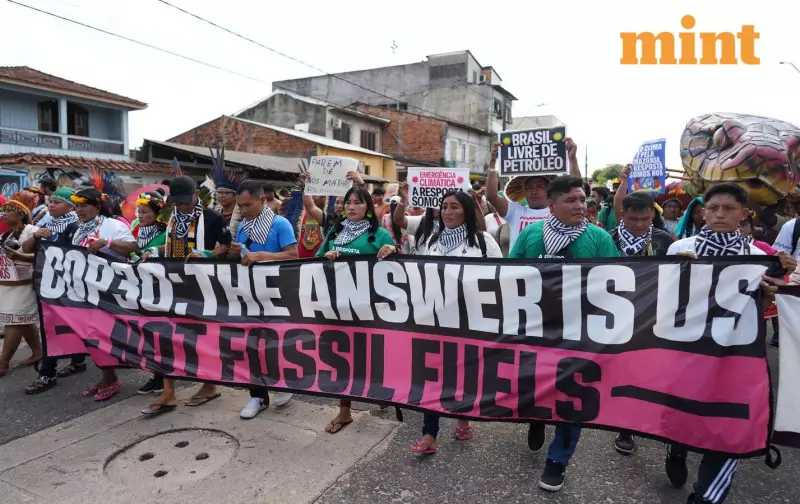
The COP30 international climate summit in Belem, Brazil, is facing significant challenges in addressing the most critical issue of our time: creating a global roadmap to phase out fossil fuels. Despite having 145 agenda items for discussion, the conference has notably excluded the single most important topic—a consensus timeline for ending the use of oil, coal, and gas.
The Core Conflict Blocking Progress
At the heart of the stalemate lies a fundamental divide between developed and developing nations. Countries like Brazil and India are insisting on their right to use fossil fuels for economic development, while demanding that industrialized nations—responsible for nearly two centuries of carbon emissions—take the lead in transitioning to renewable energy.
Meanwhile, wealthy nations including the EU countries, Australia, and the United States want universal action but remain unwilling to provide adequate financial compensation to poorer countries. China, despite making remarkable advances in renewable energy technology, refuses to commit to written agreements for phasing out fossil fuels.
The situation is further complicated by petro-states like Saudi Arabia and Russia, which consistently veto any proposals to limit oil and gas extraction. This leaves vulnerable island nations, facing potential uninhabitability within a generation due to rising sea levels, caught in the crossfire of competing interests.
Ten Years After Paris: Where We Stand
A decade after the historic Paris Agreement, the world remains on a dangerous trajectory. Current national climate policies indicate the planet is heading toward 2.4-2.8 degrees Celsius of warming above pre-industrial levels by 2100. This level of heating would trigger catastrophic consequences including deadlier storms, coral reef extinction, higher sea levels, prolonged heatwaves, and widespread crop failures.
The only positive development since Paris has been the significant improvement from the previously projected 4-5 degrees Celsius warming. The agreement successfully established official policy to limit warming below 2 degrees Celsius, with ambitions updated in 2018 to keep it under 1.5 degrees Celsius.
Remarkable progress in renewable energy has also occurred, with solar power becoming the cheapest electricity source and renewables outpacing fossil fuels in global energy generation in 2025—achievements that were unimaginable in 2015.
The Urgent Need for Accelerated Action
Despite these advancements, the pace of change remains dangerously slow. The 2018 IPCC report emphasized that global greenhouse gas emissions must decrease by 45% from 2010 levels by 2030 to achieve the 1.5-degree goal. Instead, emissions continue to rise annually.
The latest United Nations Environment Programme Emissions Gap Report reveals that in 2024, global emissions increased by 2.3% above the previous year, with the rate of increase itself accelerating. The report concludes that the world is completely "off target" in controlling climate change and requires a 55% reduction in emissions by 2035 compared to 2019 levels.
Climate activist and former US vice president Al Gore recently emphasized the urgency on social media, stating: "There is huge momentum to develop a roadmap for the transition away from fossil fuels. Agreeing to create this roadmap would make COP30 a major success... But Saudi Arabia is demanding that it be vetoed. The rest of the world must stand up to the obscene greed and recklessness of those who want to continue to profit from the primary cause of the climate crisis."
The growing demand for a fossil fuel phase-out roadmap at COP30 reflects the critical nature of the climate emergency. With time running out, the international community faces increasing pressure to overcome political barriers and take decisive action against the primary drivers of global warming.





